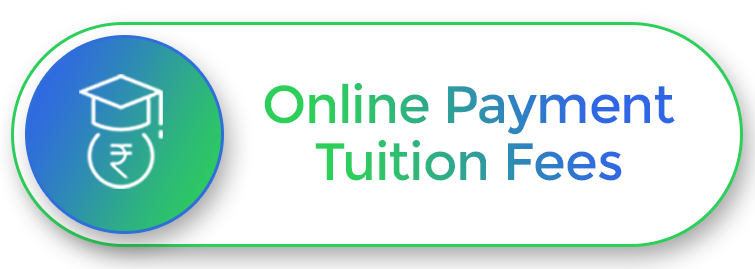Curriculum Development
Design and development of curriculum and syllabi are carried out in the department, in alignment with the Vision and Mission of the department, Program Educational Objectives (PEOs), Program Outcomes (POs) and Program Specific Outcomes (PSOs).
The Course Outcomes of each subject, POs and PSOs are framed by considering the views of Internal and External stakeholders. The Curriculum, COs, POs and PSOs of the programs are evaluated every year and it is analyzed by the Programme Assessment Committee (PAC) Members and Department Advisory Board (DAB) Members.
The curriculum is framed by involving the stakeholders and experts in the field of studies concerned. The revision and reframing of curriculum is based on advanced technologies and suggestions from stakeholders. For curriculum development, the departments assess the prevailing status of the curriculum and the feedback from stakeholders (students, alumni, industries and peers). The suggestions received from stakeholders are reviewed by the Chairman of Board of Studies (BoS). The recommendation from the Chairman and the expert is taken into account and the framed curriculum is submitted for approval in the BoS. Then the Standing Committee consolidates the inputs received from Board of Studies and submits to the Academic council for its consideration and approval. Academic Council scrutinizes and approves the proposals of the Boards of Studies with regard to courses of study, academic regulations, curricula, syllabi and modifications.
Outcome Based Education
Outcome Based Education (OBE) is being adopted by the Institution from the academic year 2015-16 onwards. The curriculum of OBE is designed by obtaining inputs from statutory bodies like Governing Body, Academic Council and Board of Studies and from the stakeholders. By keeping OBE in forefront, changes in regulations, inclusion of open elective system, blending of theory with practical through embedded courses are made besides introducing add/drop course options for the students enabling them to study the courses well in advance and to pursue internships from second year onwards. Projects are also included in the syllabi to facilitate the students to apply the knowledge gained throughout the program and to develop the problem solving skills. Moreover, the Project based Learning (PBL) offered in the second and third year of the degree program gives the students the opportunity to enhance their knowledge and skills by engaging themselves in projects set around challenges and problems they may face in the real world.Choice Based Credit System
The entire Undergraduate and Postgraduate programs offered by the Institution adopt Choice Based Credit System (CBCS) since 2015-2016. Choice Based Credit System (CBCS) is offered in the curriculum to provide freedom to the students to select courses on their own interests. The CBCS enables the students to take courses of their choice, learn at their own pace, undergo additional courses and acquire more than the required credits, and adopt an interdisciplinary approach to learning. A framework of the curriculum is developed by the departments for their programmes. This system provides flexibility in designing curriculum and assigning credits, based on the course content and hours of teaching. The Institution takes up Bloom’s Taxonomy to deliver course contents to encourage higher order thinking in the students by building up from lower-level cognitive skills.
Curriculum on National, Regional and Global Developmental Needs
The curriculum is developed considering the needs that exist at the regional and national levels to promote global competencies, and to resolve environmental, ethical and social issues.This target is achieved by offering courses like Soft Skills, Employability Enhancement and Analytical Skills, Environmental Science, Waste Management, Engineering Economics, Personal Values, Professional Ethics and Human Values, Renewable Energy Technology and Financial Management. The students are exposed to environmental and social issues through clubs like NSS, YRC and Tree Plantation club.
The curriculum commensurate with global standard enables lifelong learning through Value added Courses, online courses in NPTEL or SWAYAM and MoUs with National and International Corporate like Virtusa, Infosys Campus Connect, Nexware Technologies, Vi Microsystems, Power Projects, Smart Ant and Live Wire address the requirements of the current scenario. Besides, the Open Electives (OE), that are being offered, help the students to learn courses from other departments in addition to their core subjects. The OE like Waste Management, Waste Water Treatment, Renewable Energy Technology, etc., educate the students about the pressing challenges and needs at local, regional, national and global level. Furthermore, the Institution is focusing on developing the employability skills of the students through the In – House companies which act as a reference guide for each skill set and provide training that is adapted to ensure its trainees development according to the companies’ expectations. Temenos (I GEN), 3 Mind Strategic and Thulliam are the In – house companies functioning inside the campus. In- House Company training is offered to the students from second year onwards. Students are selected on the basis of their academic performance and their areas of interest. Students are given training on the ongoing project of the company. Based on the company, the modules are assigned to students either individually or as group. The progress of the modules assigned to the students is being monitored by the company trainers. Students are able to gain industrial experience, its culture, norms and the tools of the real time projects. The curricular component, Employability Enhancement Courses (EEC) and the in-house training, help the students to become employable at National and Global level.



